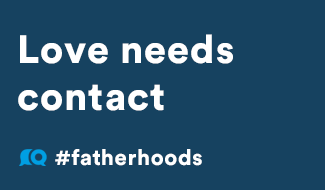Sadly a great deal is expected from separating and divorcing couples, often at the most challenging and difficult time in their lives. The ending of a relationship is very often experienced by those involved as a trauma and a bereavement. We know that “typical” trauma can involve feelings of anxiety, guilt, anger, grief, disbelief, depression and confusion and at any one time an individual may feel a number of those emotions even over the course of a single day.
It is so important that parents manage their conflict in order to protect and promote their child’s wellbeing.
Legal systems are about the law and Courts and Judges have statutory requirements and case law which they need to consider when making any decision in relation to children. The legal process is not designed nor is it able to assist parents in any emotional support and the expectation can often be that parents simply “need to get on with it”. Very often it can be difficult for those involved in a legal process to accept a Court decision if an individual feels that an Order has been imposed on them, it can be difficult for them to “buy in”.
It is true, that mediation may not be the easy option. What research does tell us is that the effects upon children of parental conflict can be far reaching and very damaging for those children including the ability to establish long-term relationships into adulthood with an impact on their general wellbeing and performance at school. Indeed many children can exhibit a whole host of difficulties which can have a longstanding and lasting impact upon their own functioning.
Mediation can provide a safe and supported arena for parents to address parental dispute and to look for a way forward that will work for them both as parents but perhaps more importantly for their children.
Almost without exception parents agree that their children need to be loved, cared for properly and to have stability.
Mediation can help separating parents to look at far more than how children might divide their time between their parents. Mediation can help parents consider important issues for their children about discipline and boundaries, healthcare and education. Indeed the list can go on. A mediator can very often help separated parents consider aspects that they may not have previously thought of and perhaps most importantly can assist parents in being able to communicate with one another as parents even though their own relationship may now be ended.
With the exception of emergency situations the Court now requires a parent considering Court proceedings to attend a Mediation Information and Assessment Meeting (MIAM). A MIAM is a very helpful way to hear information about the mediation process and perhaps alternatives to resolve conflict. It is also worth bearing in mind that the cost of a mediation process in general is far cheaper than legal costs in Court proceedings and can often produce results much more quickly than can be obtained in the Court process, not to mention arrangements that may work better for all involved.
Posted on January 9, 2018














